Devon Trevarrow Flaherty's Blog, page 11
June 6, 2024
The Writing Job: April Henry on The Writer Files
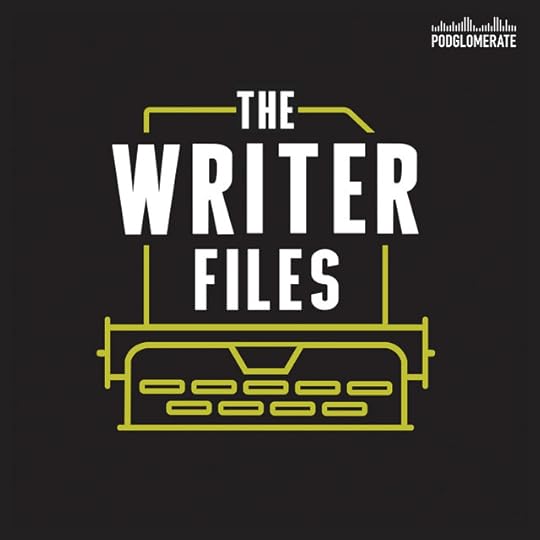 Image from Spotify 2024
Image from Spotify 2024It was just a normal day and I was just driving my ’17 Forester (named Smokey) along the Triangle freeways and highways when the latest episode of The Writer Files came up on my podcast player. I was like okay, that sounds good, and Kelton Reid started telling me (in his deep, dulcet, and mellow voice) where I was and how I could subscribe and what I was about to hear: an interview with author April Henry. Sure. I had’t heard of her, but that had never stopped me from listening to an author interview before.
By the time I pulled into my driveway at the end of a very long day, the episode was ending. I burst in the door and was like, “Kevin, I just heard the most unassuming podcast about the most interesting person I have ever heard and may ever hear. I have to tell you—”
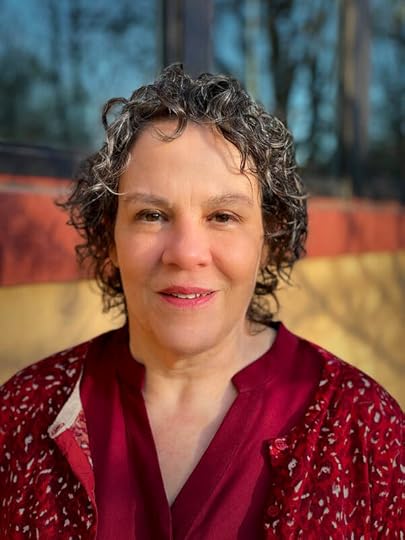 Image from Wikipedia 2024
Image from Wikipedia 2024Look, I haven’t read a word of Henry’s work. I also don’t want to talk the episode up too much, though I wouldn’t discourage you from checking it out HERE on iheartradio or just looking for the “How NY Times Bestselling Author April Henry Writes” (May 17 2024) on The Writer Files podcast on whatever app you use to listed to podcasts. But I wanted to share some amazing things from the interview because I am bursting with them.
April Henry writes every day on a treadmill desk. Meaning she spends hours typing while walking in place. I can’t even imagine but now I want to try.She was published at age 12 by Puffin when Roald Dahl pitched her over a lunch. She didn’t even try again for many years.The woman writes crime. Instead of just doing some research like a normal person, like on the internet or in a library, she has taken classes on things from firearms to knife-throwing, fighting to “urban escape.” At the end of the urban escape class, she was freakin’ abducted (as part of the course), bound, blindfolded, tasered and thrown in a trunk. She was expected to escape and do a number of tasks to demonstrate she could evade bad guys and authorities and survive on the lam.She was recently attacked by a knife-wielding woman in the middle of a road, stabbing the trunk of her car as her husband reversed it out of there to take refuge with the other people whose cars had been attacked.It does not end there. And these were only the random stories that happened to come up. She is so hard-core as a writer. Sure, we’re not all going to do our writing this way, but I love it. So inspiring and so interesting. And the thing is that she delivers all these stories in this sorta dysthymic tone, and when you look her up she looks like the most normal, middle-aged lady in the country. Don’t be fooled! She’s one of those people who doesn’t know what boring is; she reminds me of an old friend who I would swear things just happened to her (every single day) and she was more than happy to meet this strange life half-way.
Actually, a great place to get more of Henry’s story is at her WEBSITE, which I have taken a peek at. The banner along the top welcomes you with, “I kill people, but only on paper” and if you do some clicking around you’ll find all sorts of interesting biographical information and stories.
That’s all I have to say. Except this: if your kid is doing a project about a famous person and is interested in writing or books, this is the author you want them to research (keeping in mind she only writes for teens and adults). It’ll make for one great posterboard.
The Starving Artist now has a Substack!

Follow along here: subscribe for FREE to weekly emails, subscribe for a few bucks to further content, or donate any amount to become a patron of the arts.
Check it outSubscribeDonateJune 3, 2024
Book Review: Trust
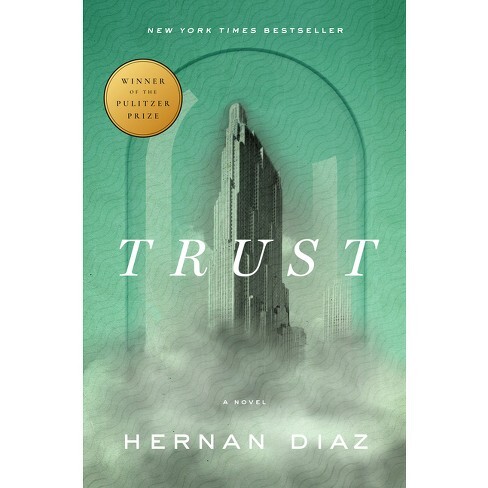
Trust by Herna Diaz took home the Pulitzer Prize, landing it on my TBR. And with all the mystery behind its structure? It’s a “literary puzzle?” Cool. But it was the subject matter that killed if for me: Wallstreet and finance in New York City in the 1920s-1940s or something. But also the characters and the mystery itself (including the reveal)—I just wasn’t interested in any of those things. Could I see the art of the whole thing? Yes. Did I appreciate the writing style? Mostly, though seeing that through my boredom of the topic was difficult. Do I think it was more experimental than well-executed? Probably.
When Harold Vanner publishes a novel about Wallstreet elites Benjamin and Helen (Brevoort) Rask, everyone knows that it’s really about Andrew and (the late) Mildred Bevel. But Andrew’s not happy about the story told in the fictional version, not at all. So he hires an assistant to help him pen his own autobiography and set the record straight. But there are complications and his assistant, Ida Partenza, is wrapped up in the middle of them, searching for a truth that she isn’t allowed. Did Mildred keep journals? Where did they go? And would they shed light on the truth even if Ida could find them?
As I said, this book was on my TBR because it won a Pulitzer last year. I had moved last year’s big prize winners to the top of my TBR before I joined all these book clubs (which made my standing TBR bump back a bit). But when I saw that a local book club (like just around the corner) was covering this title in May, I decided to go and discuss it with them, therefore giving Trust a deadline. Win-win.
I would like to begin with structure. I like to know exactly what I am holding in my hands when I begin reading, at least as regards tone or vibes and definitely structure. I’m not a fan of being confused until I figure it out a few chapters in. If you like that feeling of disorientation until you grasp what it is you are reading (in this case, for some readers until hundreds of pages in), then skip this paragraph and the following list. For those of you who want to know, Trust is a novel comprised of four separate but related novels inside. The first section is a fictional novel in its entirety (though it isn’t terribly long). The second section is a fictional, incomplete autobiography as a reaction to the novel. The third section is a fictional memoir written years later by the assistant who was helping to write the autobiography that was never finished. The fourth section is fictional, translated diary entries from the most mysterious character from the three stories that precede it.
To break it down by title and page numbers:
Bonds, Harold Vanner (a supposed novel), 124pps.My Life, Andrew Bevel (a supposed, unfinished autobiography), 66pps.A Memoir, Remembered, Ida Partenza (a memoir combined with an expose), 168pps.Futures, Mildred Bevel (journal entries), 41pps.Whether or not you read the two paragraphs I warned you about or not, Trust is a “literary puzzle,” according to the back cover copy. And it is, but to be frank, that makes it sound way more exciting than the experience allows for. Trust is mellow, understated and nuanced. It takes a helluva lot of pages to get anywhere and even the big reveals—the main (and sparse) drama—is told in a largely calm way. Thankfully the two actual-fake-books are longer sections than the two fake-document sections, so that makes for more interesting reading than just-bear-with-me reading (like think Biblical begats).
It takes a long time to get to the aha!s, which means it would make a great re-read. I will never do it, though. I don’t want to re-read it. I didn’t even really want to be reading it the first time (once I had given it enough of a chance to feel what I was reading). Wallstreet! Finance! New York City! The first two things are topics that make me want to snooze. The third is one I consider overdone. (If I never have to watch another movie about LA or read another book about New York City, I will be just fine with that. It’s not just about a topic being overdone, it’s also about Hollywood and Big Publishing and how those worlds present themselves with their heads up their butts.)
While I was reading, I felt like I was reading a gimmick, like everything I was doing was to catch the gimmick. This guy, you see, he took four different fictional documents and presented them so that we have to figure out for ourselves how they work together and how—even if there is a—truth. But he didn’t weave things together, oh no. He gave the texts to us separately. And we just have to calm the heck down and plow our way through. It’ll be worth it to figure it out but mostly it’ll be worth it to explore the many topics that are embedded in the work so deeply it’ll take a discussion and/or re-reads to really appreciate it.
I really wish it hadn’t taken Diaz 400 pages to make us think about how everyone has their own truths. Or think about women as copies or clones (so haunting). Or explore marriages of convenience. Or compare history with fact, consider how history changes over time.
At the book club, it was really interesting to see people come in not liking the book and then, after discussion, remark how much their opinion had changed. This is the kind of book where that could happen: when studying it, a reader might find there is much more there than the (un)enjoyment. This is where much of the value is, maybe. On the other hand, I found the actual writing to be lackluster until it suddenly wasn’t for a bit, and, despite everyone else’s opinion, I was not impressed by a real variance of voice between sections. There is a character (the socialist father) that doesn’t seem to pan out as a concept. A confusing spot with the boyfriend and the truth (and no one could say for sure what was supposed to have happened there). Is it entertaining as it goes? Like 95 per cent no. Is it worth it as a read? Yes, if what you are looking for is innovation in literature, slow simmers with mellow moments of revelation. Finance. Wallstreet. Historical fiction that is more literary than genre. And the big prize winners, which as far as I can tell is a real crap shoot.

Diaz’s first novel, In the Distance, was shortlisted for the Pulitzer (and the PEN) and won other awards. Trust is his second novel. It won all sorts of awards and was on about a million best-ofs lists. His short stories have appeared in several of the top literary magazines and he’s received several top fellowships. He also has a biography on Luis Borges.
Diaz is Argentinian-American, having also lived in Sweden and England. He is a professor at Columbia and runs a literary magazine.

“He became fascinated by the contortions of money—how it could be made to bend back upon itself to be force-fed its own body” (p16).
“She was older, well-read, and educated enough to realize that Leopold was becoming a hoarder of nonsense. She was being displaced by dogmas and creeds that a few years before would have been the object of their shared ridicule and served as inspiration for their absurd tales” (p34).
“…she thought there was no greater violence than the one done to meaning” (p41).
“The faint coolness in the air was also a scent. It was not the conspicuous tokens of affluence that impressed her—the obvious Dutch oil paintings, the constellations of French chandeliers, the Chinese vases mushrooming in every corner. She was touched by smaller things. A doorknob, An unassuming chair in a dusky recess. A sofa and the void around it …. These were all common-enough objects, but they were the real things, the originals after which the flawed copies that littered the world had been made” (p51-52).
“Finding bliss becomes on with the fear of losing it” (p57).
“She knew that Mr. Brevoort’s newly acquired eccentricities, her heightened frivolity, her calculated impertinence, and her gratuitously flamboyant behavior were not simply manifestations of unbridled joy but acts of a festive sort of aggression directed straight at Helen both as a dare and as a lesson—‘This is the life you should be living’” (p62).
“Most of us prefer to believe we are the active subjects of our victories but only the passive objects of our defeats. We triumph but it is not really we who fail—we are ruined by forces beyond our control” (p73).
“The mind becoming the flesh for its own teeth” (p83).
“And what is choice but a branch of the future grafting itself onto the stem of the present?” (p100).
“His mourning was simply a more radical expression of his marriage: both were the result of a perverse combination of love and distance” (p123).
“Today’s gentleman is yesterday’s upstart” (p136).
“No enterprise can fully succeed without a true understanding of human behavior” (p142).
“Every financier ought to be a polymath, because finance is the thread that runs through very aspect of life. It is indeed the knot where all the disparate strands of human existence come together. Business is the common denominator of all activities and enterprises” (p149).
“Although I loved and appreciated her from the moment we met, only once she had left it did I notice how far-reaching and pervasive her influence was in my everyday world” (p165).
“Workers became consumers. And in short order consumers became ‘investors.’ Because debt no longer carried the stigma it used to, the masses did not hesitate to gamble with money that was not truly theirs” (p181).
“…this reckless gambling undermined the foundations of [America’s] hard-earned prosperity” (p182).
“When we first wake up in the morning we trade rest for profit” (p189).
“Because the worst literature, my father would say, is always written with the best intentions” (p204).
“Man had become the machine’s machine” (p210).
“Needless to say, he objected to consumerism and the alienation fueling it—in a perverse circle, workers kept dehumanizing jobs in order to both produce superfluous goods and purchase them” (p215).
June 2, 2024
The Artist Recommends: What to Read in June (Summer Reading)
It’s summer! Or it will be this month. Some of you have already moved into summer schedules and others are soon to follow. I have a week left of driving my son to school, but I am beginning summer read #1 tomorrow (finishing up another book today). Personally, I like my summer reads to be lighter than my “winter reads.” I love to throw in some romance, some YA, plenty of genre. But I also associate summer reading with the classics, with the books you “should have” read a long time ago, which might go back to those Book It Pan Pizzas or even the library summer clubs my kids used to join (because I made them, really).

Here are some reading suggestions that span all of what I just mentioned.
First for the classics, which are titles that seem doable for summer and that I have already read and loved:
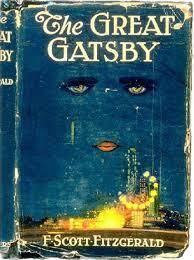
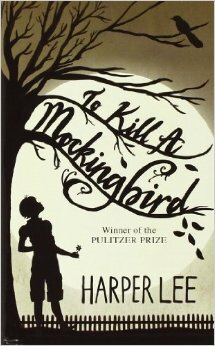
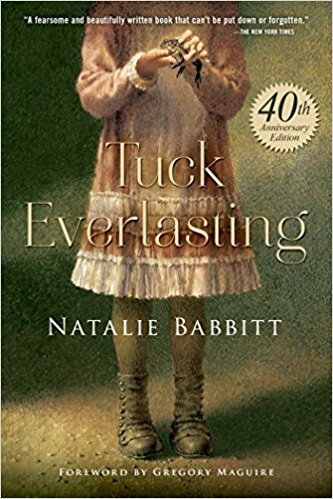
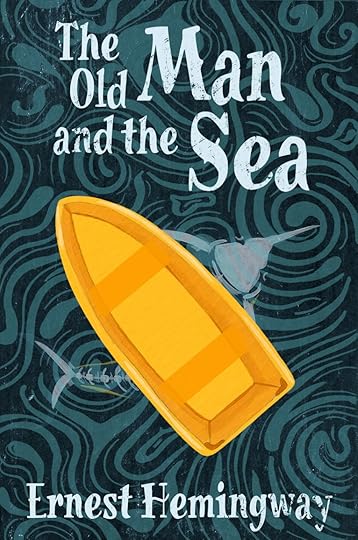
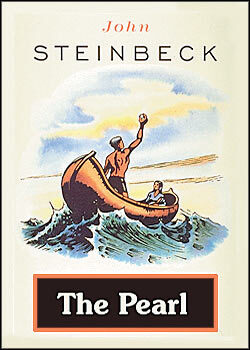 The Great Gatsby
, F. Scott Fitzgerald
To Kill a Mockingbird
, Harper Lee
The Old Man and the Sea
, Ernest Hemingway
Tuck Everlasting
, Natalie BabbittThe Pearl, John Steinbeck
The Great Gatsby
, F. Scott Fitzgerald
To Kill a Mockingbird
, Harper Lee
The Old Man and the Sea
, Ernest Hemingway
Tuck Everlasting
, Natalie BabbittThe Pearl, John SteinbeckNow for some popular (and some literary) literature that everyone else has read in the past several years, even if you haven’t gotten around to it, yet. I have also read and enjoyed these titles:
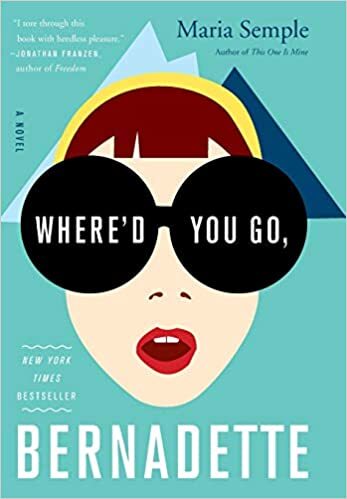
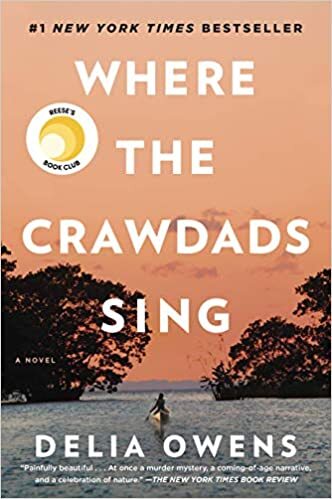
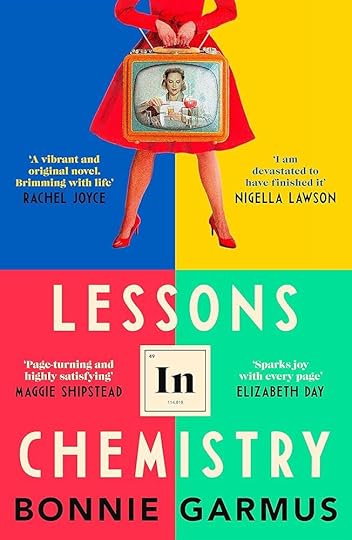
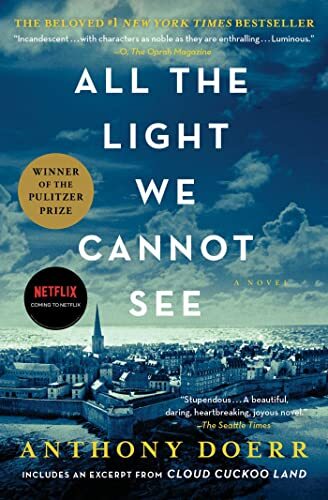

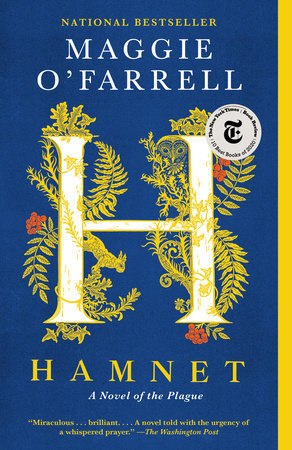
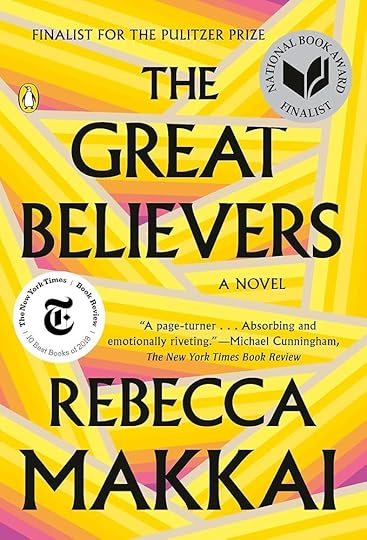
 Where You’d Go, Bernadette?, Maria Semple
Where the Crawdads Sing
, Delia Owens
Lessons in Chemistry
, Bonnie Garmus
All the Light We Can Not See
, Anthony DoerrProphet Song, Paul LynchHamnet, Maggie O’Farrell
The Great Believers
, Rebecca MakkaiStay with Me, Ayobami Adebayo
Where You’d Go, Bernadette?, Maria Semple
Where the Crawdads Sing
, Delia Owens
Lessons in Chemistry
, Bonnie Garmus
All the Light We Can Not See
, Anthony DoerrProphet Song, Paul LynchHamnet, Maggie O’Farrell
The Great Believers
, Rebecca MakkaiStay with Me, Ayobami AdebayoWant some genre? Something I have vetted for you?:
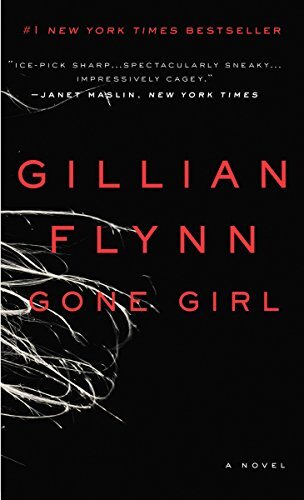


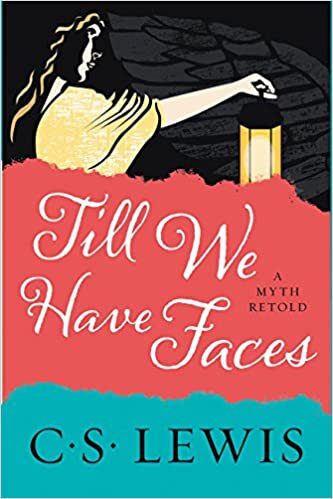

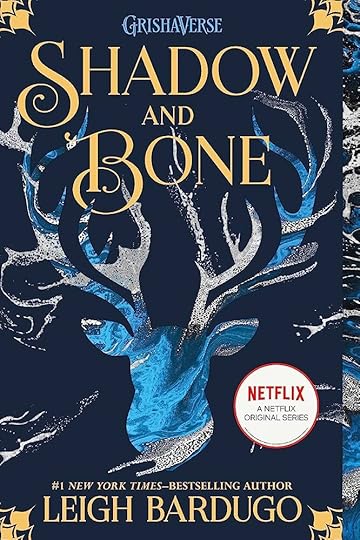
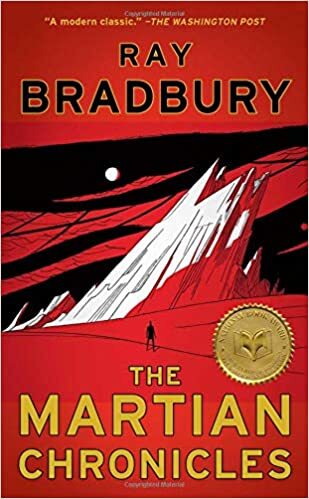
 Gone Girl, Gillian Flynn (mystery/thriller)Eligible, Curtis Sittenfeld (romance)
The Guernsey Literature and Potato Peel Pie Society
, Mary Ann Shaffer and Annie Barrows (historical)Till We Have Faces, C. S. Lewis (fantasy/myth)The Song of Achilles, Madeline Miller (romance, myth)Shadow and Bone trilogy, Leigh Bardugo (YA fantasy)
The Martian Chronicles
, Ray Bradbury (sci fi)The Hunger Games trilogy, Suzanne Collins (YA dystopian)
Gone Girl, Gillian Flynn (mystery/thriller)Eligible, Curtis Sittenfeld (romance)
The Guernsey Literature and Potato Peel Pie Society
, Mary Ann Shaffer and Annie Barrows (historical)Till We Have Faces, C. S. Lewis (fantasy/myth)The Song of Achilles, Madeline Miller (romance, myth)Shadow and Bone trilogy, Leigh Bardugo (YA fantasy)
The Martian Chronicles
, Ray Bradbury (sci fi)The Hunger Games trilogy, Suzanne Collins (YA dystopian)

There are so many things I would like to read this summer; I won’t be able to read them all. Here are my suggestions for books that I haven’t yet read, some of them new brand-new:
Anticipated books releasing in June:
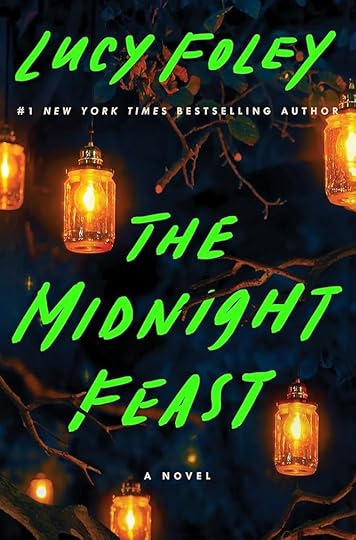
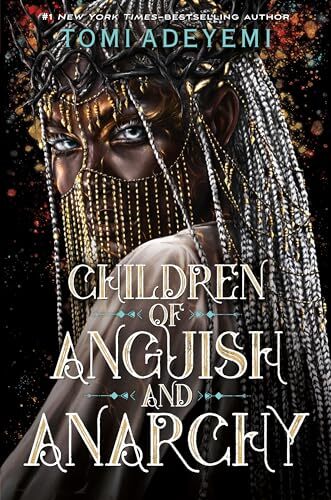
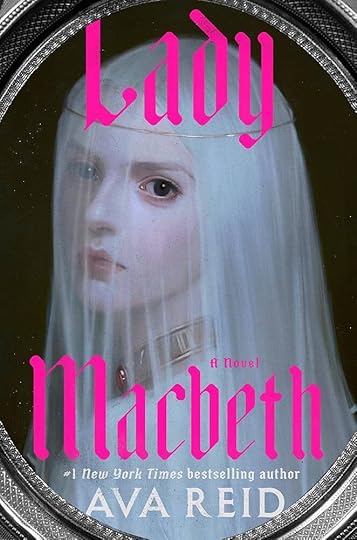
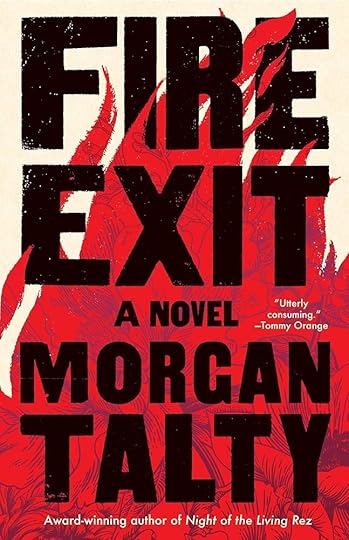
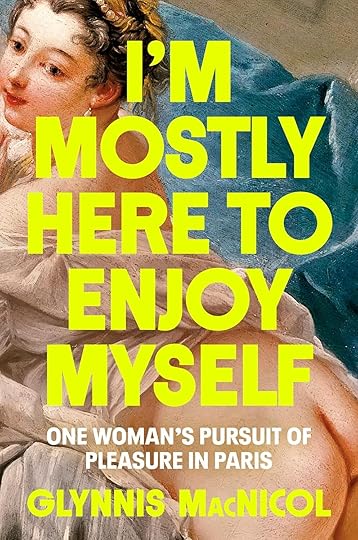

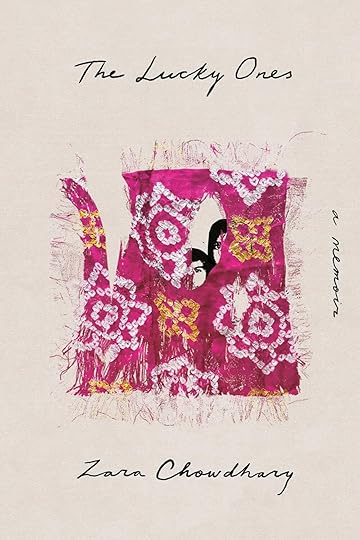
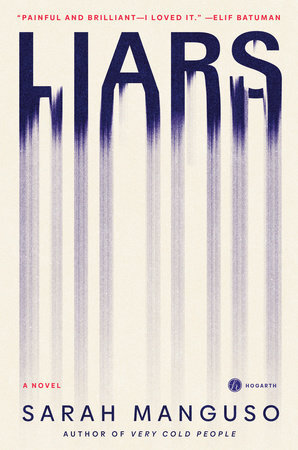 The Midnight Feast, Lucy FoleyChildren of Anguish and Anarchy, Tomi AdeyemiLady Macbeth, Ava ReidFire Exit, Morgan TaltyI’m Mostly Here to Enjoy Myself, Glynnis MacnicolCue the Sun!, Emily NussbaumThe Lucky Ones, Zara ChowdharyLiars, Sarah Manguso
The Midnight Feast, Lucy FoleyChildren of Anguish and Anarchy, Tomi AdeyemiLady Macbeth, Ava ReidFire Exit, Morgan TaltyI’m Mostly Here to Enjoy Myself, Glynnis MacnicolCue the Sun!, Emily NussbaumThe Lucky Ones, Zara ChowdharyLiars, Sarah MangusoBooks that I am really looking forward to reading this summer—they’re all over the place, including two books about writing and a book of poetry:


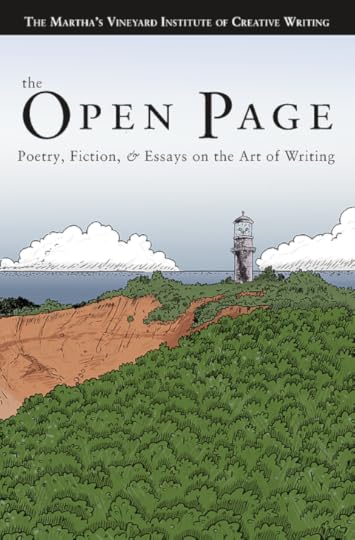

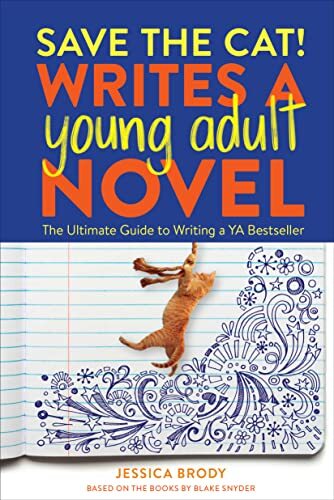 Universal Love, Alexander WeinsteinIf I Had a Lemon We’d Throw It and Call That the Sun, Christopher CitroOpen Page, Martha’s Vineyard Institute for Creative WritingHappy Place, Emily HenrySave the Cat Writes a YA Novel, Jessica Brody
Universal Love, Alexander WeinsteinIf I Had a Lemon We’d Throw It and Call That the Sun, Christopher CitroOpen Page, Martha’s Vineyard Institute for Creative WritingHappy Place, Emily HenrySave the Cat Writes a YA Novel, Jessica Brody

I am going to miss half of my book clubs this month due to travelling. Here are the books I will be reading for the book clubs I’ll be here for, plus one book I won’t be here to discuss but have wanted to read for forever, so I’ll read it anyhow:
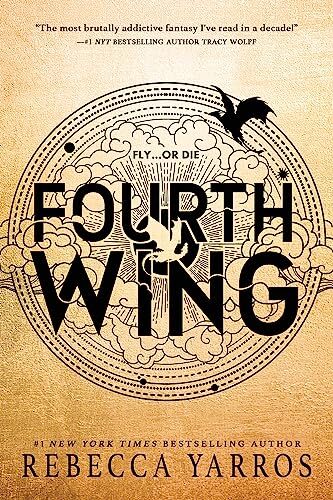

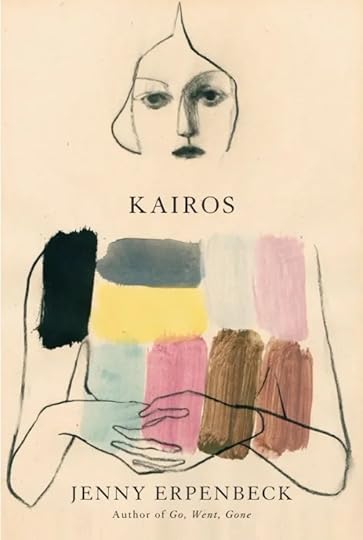
 Fourth Wing, Rebecca YarosHouse of Mirth, Edith WhartonKairos, Jenny ErpenbeckDestroyer of Light, Jennifer Marie Brissett
Fourth Wing, Rebecca YarosHouse of Mirth, Edith WhartonKairos, Jenny ErpenbeckDestroyer of Light, Jennifer Marie Brissett

My best reads of May, 2024 have been:
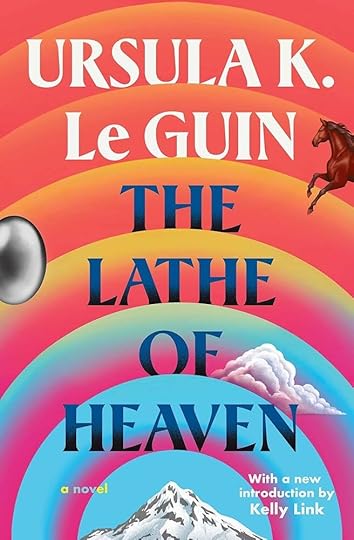
The Lathe of Heaven, Ursula K. LeGuin. LeGuin is a speculative fiction classic but I somehow haven’t read any of hers until now. I really enjoyed The Lathe of Heaven and passed it off to my husband, who also liked it, as did almost everyone at book club.

Trust, by Hernan Diaz won the Pulitzer last year and was longlisted for the Booker Prize. It was already on my imminent TBR, so I was glad to read this for book club. However, I have my reservations and you’ll want to look it up first to see if it’s your kind of book. I struggled through the topics (finance and historical NYC) and committing that hard to a gimmick.

Empty Theatre, Jac Jemc. I also have reservations about recommending this one, but most people at book club enjoyed it. I would have liked it much more if it were shorter. And in third person.

I am almost done reading Braiding Sweetgrass, by Robin Wall Kimmerer. It is an excellent book, but it is a very specific type of book. A large one consisting of individual vignettes, it is nonfiction about ecology and botany and motherhood and Native American history and culture, but it is written thoughtfully and beautifully. I wouldn’t want you to miss it—maybe keep it at your bedside to real slowly.
What to Read in June (Summer Reading)
It’s summer! Or it will be this month. Some of you have already moved into summer schedules and others are soon to follow. I have a week left of driving my son to school, but I am beginning summer read #1 tomorrow (finishing up another book today). Personally, I like my summer reads to be lighter than my “winter reads.” I love to throw in some romance, some YA, plenty of genre. But I also associate summer reading with the classics, with the books you “should have” read a long time ago, which might go back to those Book It Pan Pizzas or even the library summer clubs my kids used to join (because I made them, really).

Here are some reading suggestions that span all of what I just mentioned.
First for the classics, which are titles that seem doable for summer and that I have already read and loved:




 The Great Gatsby
, F. Scott Fitzgerald
To Kill a Mockingbird
, Harper Lee
The Old Man and the Sea
, Ernest Hemingway
Tuck Everlasting
, Natalie BabbittThe Pearl, John Steinbeck
The Great Gatsby
, F. Scott Fitzgerald
To Kill a Mockingbird
, Harper Lee
The Old Man and the Sea
, Ernest Hemingway
Tuck Everlasting
, Natalie BabbittThe Pearl, John SteinbeckNow for some popular (and some literary) literature that everyone else has read in the past several years, even if you haven’t gotten around to it, yet. I have also read and enjoyed these titles:







 Where You’d Go, Bernadette?, Maria Semple
Where the Crawdads Sing
, Delia Owens
Lessons in Chemistry
, Bonnie Garmus
All the Light We Can Not See
, Anthony DoerrProphet Song, Paul LynchHamnet, Maggie O’Farrell
The Great Believers
, Rebecca MakkaiStay with Me, Ayobami Adebayo
Where You’d Go, Bernadette?, Maria Semple
Where the Crawdads Sing
, Delia Owens
Lessons in Chemistry
, Bonnie Garmus
All the Light We Can Not See
, Anthony DoerrProphet Song, Paul LynchHamnet, Maggie O’Farrell
The Great Believers
, Rebecca MakkaiStay with Me, Ayobami AdebayoWant some genre? Something I have vetted for you?:







 Gone Girl, Gillian Flynn (mystery/thriller)Eligible, Curtis Sittenfeld (romance)
The Guernsey Literature and Potato Peel Pie Society
, Mary Ann Shaffer and Annie Barrows (historical)Till We Have Faces, C. S. Lewis (fantasy/myth)The Song of Achilles, Madeline Miller (romance, myth)Shadow and Bone trilogy, Leigh Bardugo (YA fantasy)
The Martian Chronicles
, Ray Bradbury (sci fi)The Hunger Games trilogy, Suzanne Collins (YA dystopian)
Gone Girl, Gillian Flynn (mystery/thriller)Eligible, Curtis Sittenfeld (romance)
The Guernsey Literature and Potato Peel Pie Society
, Mary Ann Shaffer and Annie Barrows (historical)Till We Have Faces, C. S. Lewis (fantasy/myth)The Song of Achilles, Madeline Miller (romance, myth)Shadow and Bone trilogy, Leigh Bardugo (YA fantasy)
The Martian Chronicles
, Ray Bradbury (sci fi)The Hunger Games trilogy, Suzanne Collins (YA dystopian)

There are so many things I would like to read this summer; I won’t be able to read them all. Here are my suggestions for books that I haven’t yet read, some of them new brand-new:
Anticipated books releasing in June:







 The Midnight Feast, Lucy FoleyChildren of Anguish and Anarchy, Tomi AdeyemiLady Macbeth, Ava ReidFire Exit, Morgan TaltyI’m Mostly Here to Enjoy Myself, Glynnis MacnicolCue the Sun!, Emily NussbaumThe Lucky Ones, Zara ChowdharyLiars, Sarah Manguso
The Midnight Feast, Lucy FoleyChildren of Anguish and Anarchy, Tomi AdeyemiLady Macbeth, Ava ReidFire Exit, Morgan TaltyI’m Mostly Here to Enjoy Myself, Glynnis MacnicolCue the Sun!, Emily NussbaumThe Lucky Ones, Zara ChowdharyLiars, Sarah MangusoBooks that I am really looking forward to reading this summer—they’re all over the place, including two books about writing and a book of poetry:




 Universal Love, Alexander WeinsteinIf I Had a Lemon We’d Throw It and Call That the Sun, Christopher CitroOpen Page, Martha’s Vineyard Institute for Creative WritingHappy Place, Emily HenrySave the Cat Writes a YA Novel, Jessica Brody
Universal Love, Alexander WeinsteinIf I Had a Lemon We’d Throw It and Call That the Sun, Christopher CitroOpen Page, Martha’s Vineyard Institute for Creative WritingHappy Place, Emily HenrySave the Cat Writes a YA Novel, Jessica Brody

I am going to miss half of my book clubs this month due to travelling. Here are the books I will be reading for the book clubs I’ll be here for, plus one book I won’t be here to discuss but have wanted to read for forever, so I’ll read it anyhow:



 Fourth Wing, Rebecca YarosHouse of Mirth, Edith WhartonKairos, Jenny ErpenbeckDestroyer of Light, Jennifer Marie Brissett
Fourth Wing, Rebecca YarosHouse of Mirth, Edith WhartonKairos, Jenny ErpenbeckDestroyer of Light, Jennifer Marie Brissett

My best reads of May, 2024 have been:

The Lathe of Heaven, Ursula K. LeGuin. LeGuin is a speculative fiction classic but I somehow haven’t read any of hers until now. I really enjoyed The Lathe of Heaven and passed it off to my husband, who also liked it, as did almost everyone at book club.

Trust, by Hernan Diaz won the Pulitzer last year and was longlisted for the Booker Prize. It was already on my imminent TBR, so I was glad to read this for book club. However, I have my reservations and you’ll want to look it up first to see if it’s your kind of book. I struggled through the topics (finance and historical NYC) and committing that hard to a gimmick.

Empty Theatre, Jac Jemc. I also have reservations about recommending this one, but most people at book club enjoyed it. I would have liked it much more if it were shorter. And in third person.

I am almost done reading Braiding Sweetgrass, by Robin Wall Kimmerer. It is an excellent book, but it is a very specific type of book. A large one consisting of individual vignettes, it is nonfiction about ecology and botany and motherhood and Native American history and culture, but it is written thoughtfully and beautifully. I wouldn’t want you to miss it—maybe keep it at your bedside to real slowly.
May 30, 2024
Book Review: She Drives Me Crazy

I felt much better about She Drives Me Crazy when I got to the acknowledgements at the end and the author, Kelly Quindlen, said, “I had so much fun writing this goofy, campy, ridiculous book.” Ridiculous is purposefully hyperbolic, but I suddenly understood better what I had read and the levity made me feel more expansive in my role as a reader, made the experience suddenly more enjoyable. Not that it wasn’t enjoyable to begin with, but being given the experience to see the book as a little (or a whole lot) spoofy, referential, and light-hearted was welcome, freeing.
Scottie is playing in her first basketball game against her ex-girlfriend’s new team, still not even over the break-up. Then it doesn’t go so well. And on her way out of the parking lot, she gets in a fender bender with the cheerleader who once played an unforgiveable prank on her. Scottie thinks it couldn’t get any worse until her mom arranges for her to drive the cheerleader to and from school until her car is fixed. But there may be a way they can both get something out of this arrangement-from-h-e-double-matchsticks.
Let me tell you exactly what this book is. It is YA. It is sapphic. It is diverse/BIPOC. It is set in a modern, high school setting. It is a love note to romcoms and other pop culture from the 90s. It is sporty. There is zero subtlety on any of these fronts. (PS. I read it for a YA book club which I then missed thanks to a migraine. Boo.)
From page one, the first scene pulls you right on into an action scene. It is a sports scene which is totally not my thing, but I could still appreciate how engaging it was from the word go, dropping us into an action and sketching us into the main character, the situation, the set-up, the stakes.
She Drives Me Crazy isn’t subtle and nor are its story arcs. If you have ever read or seen a rom-com, especially if you have seen some from the 90s and especially teen rom-coms, you’re not really left hanging. It’s laid out on the cover, for Pete’s sake: it’s an enemies-to-lovers and fake-dating mash-up. Still, it’s made much more approachable to Gen Z with the diversity, political correctness, just all the vibes about it. The 90s is nostalgia, not reality in this book. Which means, considering modern YA, that their maturity is—as I call it—aspirational, not realistic. Along with that nostalgia, the end result was much more cute than it was “hot.” I wasn’t feeling all keyed up, but I was like, “Awww.”
It was less emotionally and romantically charged than I would like, and part of this was because of it’s being too neat and tidy. Especially, and I hate to say this, Scottie’s nuclear family. I mean, I am all for the functional family in literature (sometimes), but supposed perfect families are not great. It leaves us with a climax and conclusion that is much more like therapy fiction—with the parents presenting solutions like a therapist would and the MC chooses the right one, obvi—and I have never yet found one of those books to be satisfying (like, let’s say, Eleanor Oliphant Is Complete Fine). Maybe the book felt too realistic for the goofy genre that it was? It left me hanging, a little, especially emotionally.
The list of movies mentioned:
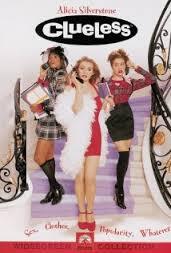 10 Things I Hate About YouJohn Tucker Must DieShe’s the ManCan’t Buy Me LoveHocus PocusBeauty and the BeastCluelessNever Been KissedDirty DancingSay AnythingMean Girls (the original)Sixteen Candles
10 Things I Hate About YouJohn Tucker Must DieShe’s the ManCan’t Buy Me LoveHocus PocusBeauty and the BeastCluelessNever Been KissedDirty DancingSay AnythingMean Girls (the original)Sixteen CandlesWhatever. It’s cute. If you are looking for this type of book, and if you understand it is meant to play with the tropes of 90s rom-coms and update them for Gen Z, then you are probably going to at least enjoy reading this book. It’s light reading. You might crack a smile. You might even find yourself in it. You might enjoy the references. It’s written well enough that the words get out of the way and you just read the story. Don’t expect too much drama. Expect warm fuzzies.
QUOTES
“If you want them to think you matter, start acting like they should already know that you matter” (p63).
“They think they’re way more progressive than my grandparents, but they’re not. Their definition of success is pretty narrow” (p107).
“Grand gestures don’t mean anything in the place of actual effort. He should have just talked to her. You know, actually communicated instead of performing some fantasy version of love. He just wanted to be all up in his feels” (p168).
“I want to know she understands how it feels to be falling in new love and bleeding from old love at the same time” (p200).
“’I’m holding on to this shred of her, and even though it’s a bad shred, it’s still something. The moment I let that shred go, I’ll have nothing left.’ / Danielle scoots closer. She kicks her sneakers against mine. ‘You’ll have nothing left of her, but you’ll have yourself, Scottie’” (p208).
“If you’re going to heal, you have to stop avoiding the hard shit. Trust that you can handle the bad parts of yourself. Trust that Irene can, too” (p243).
“But from me, you deserve honesty” (p245).
“Because before you can worry about who’s in your passenger seat, you have to learn to drive yourself” (p249).
MOVIES/SHOWS
No movie as of now. It’s new. But a great way to enjoy this book would be to follow it up with a 90s rom-com marathon utilizing the list above.
May 29, 2024
Writer in the Wild: Podcast Guest

It has been the world’s slowest burn through homeschool and other things, but I do get noticed, more acknowledgment (and my network grows) with each week, each month, each year. I get people wanting to send ARCs on a regular basis, now. I get comments on the blog more than I used to. I even got recognized by a local author and I’ll never forget him stopping me in the middle of a conversation to ask, “Are you the Starving Artist?” That’s a weird and exhilarating moment. Now for that to happen regarding a book or story…
So, when a podcaster sent me an email regarding an interview, I was not totally surprised. But a little. And I was happy to do it, and excited, and when it came down to it, really nervous. (I’m a writer, not a talker. Between ADHD and migraines, I can get my words in a right twist and end up saying completely not what was in my head or what I meant.) To be honest, I finished with the interview and was like, Well there goes my public life. I was basically manic. But thanks to my misread on reality coupled with–more importantly–their edit, it is actually a pretty good interview.
The interview’s not about me, really. I’m not that interesting (yet). The interview is about The Writer’s Journey by Christopher Vogler. The Words to Write By ladies found me because my book review popped to the surface when they were doing research. This actually happens, which I already knew. Some of my reviews are top-billing on internet search engines just because they are out there and some people have visited them and, in some cases, they cover a book or topic that is not as present on the internet as others. Voila! I am an expert on the Hero’s Journey! Turns out I do know a thing or two about books and I have an opinion about the writing process as it pertains to the Hero’s Journey. So, I’m pretty sure they were good with my interview. They were very kind. And I think I was kind to Vogler.
Words to Write by, episode for May 29, 2024 is HERE. I am at minute 27, but if you are interested in writing books or the writing process, then give them a follow to go through the entire book chapter by chapter, or check out their old podcasts on The Art of Fiction. Zen in the Art of Fiction, Scene & Structure, Bird by Bird, and Writing the Memoir. Their website is HERE.
May 24, 2024
Book Review: Mary Jane

I can’t help but wonder if what I didn’t enjoy in Jessica Anya Blau’s Mary Jane was just me being defensive. I mean, my book club mostly found it readable, believable, and open and fair to both families presented in it. Meanwhile, I came ready to say that it was yes, readable, but not believable and really black and white with its representation of one family as flawed but ideal and the other as monstrous. And one little scene at the end wasn’t going to change my mind. So, I don’t know. The best I can do is give you my read and you can find other reviews elsewhere. I ended up basically liking this book, but it had some real flaws which, by telling you about them now, might actually change the experience for you for the better. You’ll know what to expect.
Mary Jane is quiet and straight-laced, White, upper middle class, and Protestant, living with her mom and dad in a nice neighborhood of suburban Baltimore in the 70s. But when she gets a summer job watching the daughter of a doctor who lives just a couple streets over, well, neither she nor her mother expected anything like this household. Her secrecy about the gig is compulsory: Dr. Cone, the psychiatrist, is hosting a famous couple in his home for the summer to help them with a drug addiction. But Mary Jane also keeps secrets—which she never would have dreamed of before—because she knows it would end her job and her summer of awakening. And, oddly, she is having the best time and feels all warm and cozy amidst the chaos and lawlessness of the Cones and their guests.
I read this book for a book club. It turns out that this book club (not in the advertising) is really a women’s fiction club. Maybe it’s unintentional. And it turns out that is not my favorite genre (even though at least one of the books I have written would probably fall into this category). I am dropping the book club, consequently, but I was still around for Mary Jane. In other words, I would not have picked this one myself and was half-looking forward to it and half-dreading it. I liked the idea. I didn’t know how well I would do with the type of book it is.
So first off, it is a YA perspective in an adult book. Perhaps it is meant for older readers, like women who were teens in the 70s? I mean, other people could definitely read it and enjoy it, but there is a little confusion when the strong voice of the novel is so very teenager-y; we see everything from her (often naive) perspective, but, well, I’m older than like every single character in the story. I mean, I read YA all the time, but this one is more of a stuck-between kind of perspective that no one seemed to mind. It’s not like Kevin Arnold telling us about growing up in the Wonder Years. It is Kevin Arnold in the Wonder Years.
It reminded me of Almost Famous. It reminded others of Are You There God, It’s Me Margaret?. (Both of these are excellent movies and I’m guessing at least one of them is a good book.) So, teen coming-of-age while also waking up to the culture, freedoms, and experimentation/rebellion of the 60s and 70s. Also, sheltered, restrictive childhood gives way to the lure of drugs, sex, and rock ‘n’ roll. And Mary Jane is full of drugs, sex, and rock ‘n’ roll (without actually being racy). It’s not an accident that her name is Mary Jane.
Sure, there were some funny things in this book. And Mary Jane had a compelling perspective in a fun set-up of a situation (which may or may not (the author says) have been based on Cher and one of the Allman brothers). It was cute. It was a fast read. It was at times funny and at many times relatable. Ultimately, it was a juxtaposition of parenting styles (and therefore lifestyles), though I was frustrated with the extremes of the examples. I thought it was good guy and bad guy instead of nuance. Also, drugs weren’t taken the least bit seriously (though the book is about someone dealing with addiction, it’s sort of a light version of the whole scenario, and marijuana has zero stigma or repercussions, even driving while under the influence).
Ultimately, though, my real issues with the book are not about the toxic and cold portrayal of the straight-laced family or even the normalizing of drug use, but with the writing. There was just too much narrating, too much description. Blau is fond of listing things out and walking through steps which I found yawnable time after time. I love a few, key details thrown in to put me in a place and time, but telling me step-by-step how Mary Jane made eggs in the hole, including her looking for the spatula, washing her hands… blah, blah, blah. And do we have to know every album they all bought at the record store? Yikes.
There were many things worth thinking about in this book (race relations, lightening up a bit, growing up, adulting in a mature way, etc.) but the characters were so overdone that I couldn’t relate to them. And with the long-winded scenes, I also couldn’t enjoy the read despite it being cute and interesting, taking us into a very distinct corner of a time in history and mentioning lots of nostalgic things. Plus, I did not find the ending to be believable, at least as it related to Mary Jane’s family, specifically her mother. That storyline needed a lot more give and set-up throughout the novel.
Most of the other ladies liked it. Maybe all of them, actually. And the ladies who were teens in the 70s? They said, “Right on!”

“…could it be that all messes weren’t evil and didn’t need to be banished with such efficiency?” (p8).
“It had never before occurred to me that sometimes dishes weren’t just dishes, that things could represent ideas in more powerful ways than the ideas themselves” (p135).
“What we’d never learned was that sometimes ideas of racism and anti-Semitism were sparked to life by the very people you lived with” (p152).
“Until I met Jimmy, I hadn’t understood that people you loved could do things you didn’t love. And, still, you could keep loving them” (p204).
“I’d cried more this summer than I had in all the years since I was Izzy’s age. And I’d never been happier” (p205).
“But it’s hard to have a balanced friendship when one person wants everything the other person has” (p228).
“I couldn’t let myself think about it. I was afraid of ending up wildly disappointed” (p240).
“How cooking for people you love feels less like a chore and more like a way of saying I love you” (p279).
“My mother had been such a good mother to me in so many ways. She’d taught me so much. And she’d been excellent company. Until she wasn’t” (p279).
“Don’t ever let anyone tell you that fun isn’t important because, damn, Mary Jane, if there’s one thing I’ve learned in my strange life, it’s that fun counts” (p296).
“I’d always had the feeling that it was impolite and conceited for a girl to actually like who she was. But Sheba clearly loved who she was. And that seemed cool to me” (p303).
Writer in the Wild: Fantasy Author Event
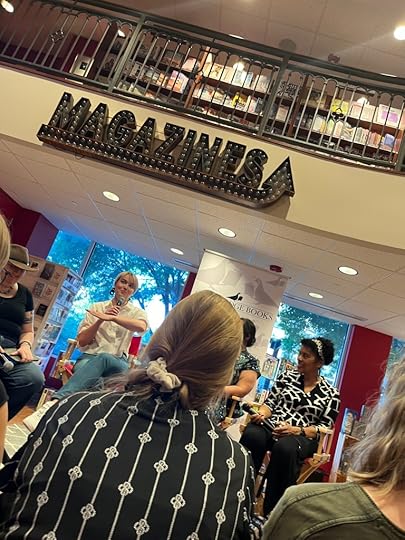
I mean, it’s not exactly New York City, but I do find that authors (and other events and shows) often come though the Triangle (Raleigh-Durham-Chapel Hill). This month, a group of fantasy writers on a whirlwind tour together blew through and held an event at Quail Ridge Books in Raleigh. I have become a Quail Ridge regular partly because much of my life happens (unexpectedly) in Raleigh during this stage, a result of both my kids being in school (high and college) in west Raleigh.
The group of authors included four authors and another as a moderator, all of whom have new books to promote. They were: T. Kingfisher (the host, an NC author famous for Nettle & Bone), Veronica Roth (Divergent series), Nghi Vo (a series of stand-alone novellas called The Singing Hills), Andrea Hairston (a multi-faceted rebel whose newest book is expended from Dr. Funkenstein and the P Funk Mothership), and Rebecca Thorne (self-pubbed author who was inspired by Legends & Lattes).
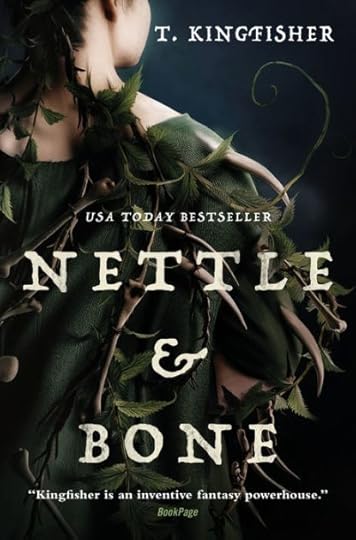
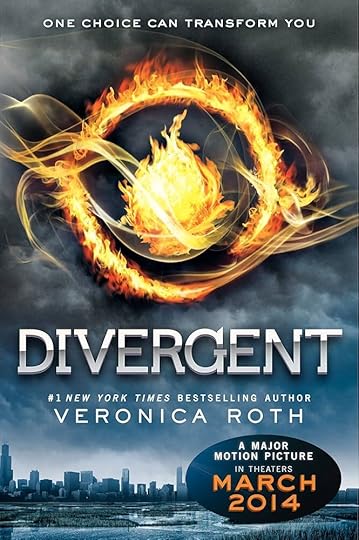
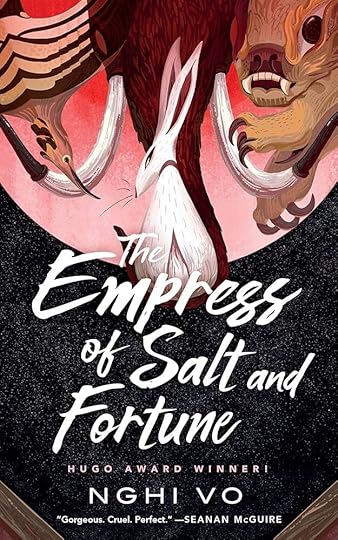
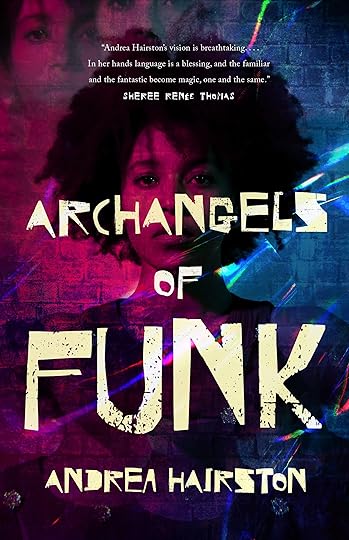
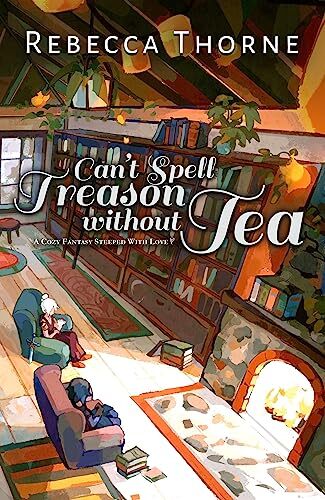
It was a full house, at least two of the authors (Roth and Kingfisher) providing plenty of star power, enough even for a book event. (And since there was more than one author, I was thrilled to see people purchasing books left and right, afterwards, to stand in line and have them signed.) I had to wiggle my way into a seat in the middle of a packed row, even though I was a few minutes early. I was alone, so that helped, but I was also fighting rush-hour between cities.
I thought it was fun and entertaining. While some of the authors were much feistier than others, and some more extroverted, I think it really helped the others to be in a group. The interactions between them was most of the fun, and they were all a little worn out and sorta punch-drunk because of it, which also made it more entertaining. I found both Kingfisher and Roth to come across as down-to-earth, people I might jive with. Harriston was a real spitfire.
Here are the points and quotes (not sure on most attributions) I wrote down:
Sometimes writing a book is like pushing a boulder down a hill and hoping it gathers good things (plot, characters, etc.), and if there are a lot of screaming villagers at the bottom, all the better. (Vo)Time compression can lead to shorter books and more excitement.In playwriting, it’s just “Does this work?” (Harriston). Aristotle said a play’s time should be 24 hours.Sometimes you just need more space to work in.“All you need in life is ignorance and confidence, and then success is sure.” -Mark Twain“Go out and do things that are not about writing.” -Hayao MiyazakiFinished and done in better than perfect.You should have something behind your story—your love or your spite.This is my world. I write the rules.A list of recommended reading from their conversation, including their books:
Divergent trilogy (Divergent, Insurgent, Allegient, Veronica Roth)Carve the Mark and The Fates Divide (Veronica Roth)When Among Crows (Veronica Roth)Poster Girl (Veronica Roth)Nettle & Bone (T. Kingfisher)Thornhedge (T. Kingfisher)The Wizard’s Guide to Defensive Baking (T. Kingfisher)Paladin’s Grace (T. Kingfisher)Swordheart (T. Kingfisher)Clockwork Boys (T. Kingfisher)The Singing Hills Cycle (The Empress of Salt and Fortune, When the Tiger Came Down the Mountain, Into the Riverlands, Mammoths at the Gates, and The Brides of High Hill, Nghi Vo)On the Fox Roads (Nghi Vo)Lonely Stardust (Andrea Hairston)Archangels of Funk (Andrea Hairston)Redwood and Wildfire (Andrea Hairston)Tomes & Tea Cozy Fantasies (Can’t Spell Treason Without Tea, A Pirate’s Life for Tea, Rebecca Thorne)The Gilded Abyss (Rebecca Thorne)The Day Death Stopped (Rebecca Thorne)The Secrets of Star Whales (Rebecca Thorne)Legends & Lattes series (Bookshops & Bonedust, Legends & Lattes, Travis Baldree)The Murderbot Diaries series (All Systems Red, Artificial Condition, Rogue Protocol, Exit Strategy, Network Effect, Fugitive Telemetry, and System Collapse, Martha Wells)Animorphs series (beginning with #1, The Invasion, K. A. Applegate)Song of the Lioness series (The First Adventure, In the Hand of the Goddess, The Woman Who Ride Like a Man and Lioness Rampart, Tamora Pierce)Immortals series (Wild Magic, Wolf Speaker, Emperor Mage, and The Realms of the Gods, Tamora Pierce)Watership Down (and the animated movie, Richard Adams)Quotable: The Lathe of Heaven
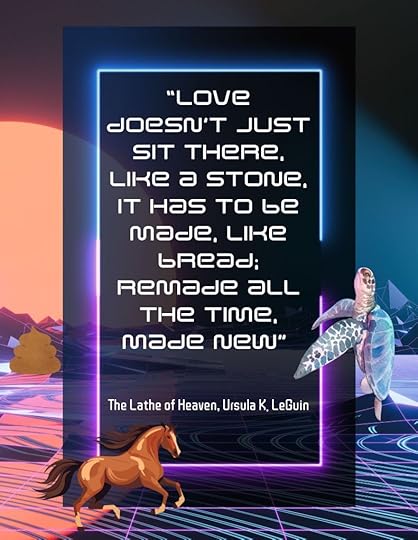
“Love doesn’t just sit there, like a stone, it has to be made, like bread; remade all the time, made new” (p159). The Lathe of Heaven, Ursula K. LeGuin.



